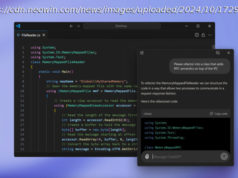Smartphones with a clean, stock version of Android are (surprisingly) aplenty in the market now, but only a few are truly impressive. The Xiaomi Mi A1, for one, was a particularly interesting Android One device
Smartphones with a clean, stock version of Android are (surprisingly) aplenty in the market now, but only a few are truly impressive. The Xiaomi Mi A1, for one, was a particularly interesting Android One device when it was introduced. Not only was it Xiaomi’s very first Android One phone, it was also one of the first mid-range phones running on Google’s stripped-down version of Android.
One year forward, we have two new additions to the series: the Xiaomi Mi A2 and Mi A2 Lite. While these two phones are based on Xiaomi’s existing phones – the Mi 6X and Redmi 6 Pro respectively – these are very, very good Android one devices, and they deserve your attention.
The Xiaomi Mi A1 (left) and Mi A2.
Naturally, the Mi A2 is the higher-end device of the two. It comes with a 5.99-inch 18:9 Full HD+ display, Qualcomm’s very capable Snapdragon 660 chipset paired with either 4GB or 6GB of RAM, three choices of internal storage (32GB, 64GB, or 128GB), as well as a 3,000mAh battery.
On the back, the Mi A2 sports a 12MP + 20MP dual-camera system. According to Xiaomi, the phone will automatically select the most ideal sensor based on different lighting situations. The 12MP shooter is used when lighting is good, while the 20MP sensor is selected for low light shots. Both sensors have large f/1.75 apertures as well.
As for the Mi A2 Lite, it comes with a more modest set of hardware. These include a 5.84-inch 19:9 Full HD+ notched display, a Snapdragon 625 chipset – similar to its predecessor, the Mi A1 – up to 4GB of RAM, two storage options (32GB or 64GB), and a large 4,000mAh battery. On the back, it features a 12MP + 5MP dual-camera system, as well as a 5MP selfie camera.
Now, let’s move on to design. Right off the bat, the Mi A2 Lite feels more comfortable to hold than the Mi A2 – this is despite the fact that the latter is the more costly phone. Don’t get me wrong: the Mi A2 still feels premium, but the Mi A2 Lite’s thicker chassis feels more pleasant to hold than the Mi A2’s much thinner sides. The A2 Lite’s more compact form factor helps with one-handed usage too.
While the Mi A2 and Mi A2 Lite’s minimalist design language is quite aesthetically pleasing, there is one design element that could’ve been improved upon: bezel size. Yes, both of these phones have much smaller bezels than the Mi A1, but compared to their competition – the Huawei Nova 3 series, for one – their bezels are quite large.
Speaking of bezels, the Mi A2 and Mi A2 Lite have pretty good displays too. Both phones’ screens can get really bright, colours look vibrant, and viewing angles are great as well. Considering how much these two phones cost, I’m quite surprised at how good their displays are.
Given their status as Android One devices, software experience is definitely one of the Mi A2 and Mi A2 Lite’s best qualities. The OS feel very fast and zippy, and there’s no noticeable stuttering at all. The lightweight nature of stock Android really lends to a pleasant software experience for these phones, and it’ll be interesting to see how this holds up in day-to-day usage.
Oh, it’s also worth noting that the Mi A2 and Mi A2 Lite will get the latest version of Android much quicker than most phones in the market. That’s the inherent advantage – and appeal – of Android one devices.
And then we have camera performance. Unfortunately, I only had a limited amount of time with the Mi A2 Lite; I didn’t manage to try out its camera extensively enough to give a proper first impression. But thankfully, I got to spend much more time with the Mi A2’s camera, and it’s pretty darn promising.
Not only does the camera interface feel very responsive, the Mi A2 can take sharp, flattering images with good dynamic range too. However, I only tried out the camera under good lighting condition – its low light performance still remains to be seen.
That being said, I’ll be spending a lot more time with the Mi A2’s camera in the coming days, so expect a more detailed look at its camera performance in the near future. I’m especially curious to see how it performs in low light settings.
The Xiaomi Mi A2 and Mi A2 Lite are great additions to the growing list of Android One devices, and Xiaomi’s aggressive pricing strategy ensures that these two phones will have excellent value for money. Simply put, the Mi A2 and Mi A2 Lite are made for budget-conscious consumers who value good software experience.
In a price-sensitive market like ours, I reckon Xiaomi’s latest Android One devices will catch the attention of many Malaysians. The only thing that’s left is for Xiaomi to launch the Mi A2 and Mi A2 Lite locally, which will likely happen very soon.
Gamer, tech junkie, and an early adopter of way too many gadgets, Andrew hopes to drive the tech journalism industry in Malaysia to new heights.






